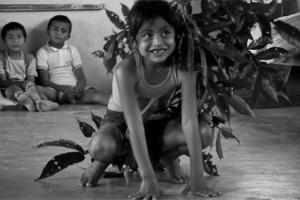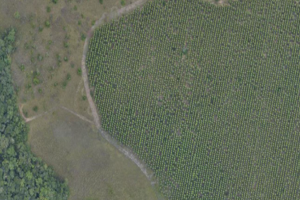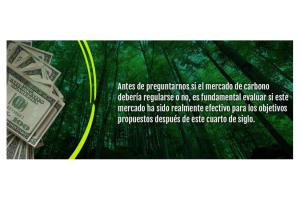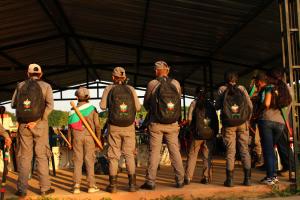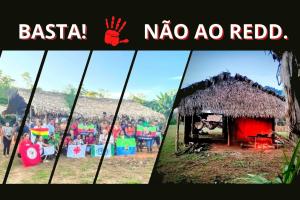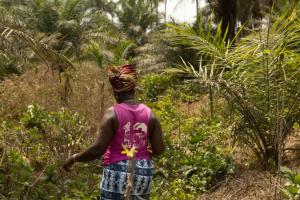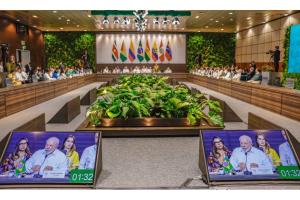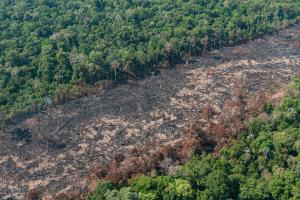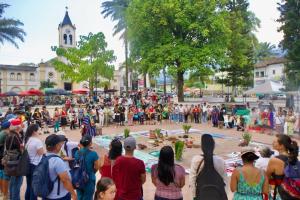This is the story of how we, a group of indigenous peoples and peasants in Colombia, have come together under the name Cajibío Interethnic and Intercultural Territory of Life (TEVIIC, by its Spanish acronym), to face one of the world's largest multinational paper and cardboard manufacturers: Smurfit Westrock. Our goal is to achieve Agrarian Reform through autonomy and concrete actions.
Colombia
Bulletin articles
15 October 2025
Other information
15 October 2025
Since the Paris Agreement, tree plantations have proliferated as purported carbon sinks and generators of carbon credits. This is a lucrative business that is also used to clean up the image of large companies. A recent article by Climate Tracker reveals some of the dirty ways companies use tree plantations to ironically promote themselves as clean. The cases come from Paraguay and Colombia. In the former, Apple uses monocultures that it presents as “forests,” in which it uses agrochemicals that are banned or restricted in other countries.
Bulletin articles
24 June 2025
How does one rebuild community ties and the “energy-joy” in communities whose territories have been devastated by predatory projects? The following text presents the proposal of the Environmental Clinic, a project that was created to help heal peasant and indigenous communities on the border between Ecuador and Colombia, whose social fabric was destroyed mainly by oil extraction projects. The 'Huipala Proposal' presents a way for these communities to move toward their utopias and recover the “energy-joy” of living, after suffering the traumas of territorial and social expropriation.
Bulletin articles
23 April 2025
Several companies have been expanding their tree plantations in the Colombian Orinoquía, which is increasing longstanding conflicts and violence. “These are not reforestation companies, but deforestation companies, because they have introduced invasive tree species that are not native to the territory – like acacia, eucalyptus and pine trees. So they are driving out what naturally grows here” - Indigenous Sikuani Leader
Other information
24 October 2024
Reflections on the ruling on carbon credits in the Colombian Amazon, by Censat Agua Viva.
Bulletin articles
22 August 2024
Colombia's Orinoquía region stretches from the foothills of the country's eastern mountain range to the Venezuelan border. This region has historically been associated with the exploitation of rubber, timber, furs and other so-called “natural resources,” to the detriment of ancestral communities. Today, new threats are emerging under the paradigm of conservation, green energy and carbon projects.
Declarations
20 August 2024
DECLARATION OF REJECTION OF REDD IN TERRITORIES OF INDIGENOUS PEOPLES, AND PEASANT, TRADITIONAL AND AFRO-DESCENDENT COMMUNITIES OF LATIN AMERICA
Alto Turiaçu – July 2024
Action alerts
30 July 2024
Indigenous, peasant, traditional and Afro-descendent peoples from the Amazon region and Central America call organizations and social movements all over the world to endorse this declaration rejecting carbon projects in their territories.
Bulletin articles
27 June 2024
Behind every tree plantation developed for carbon offsets, there are external agents seeking to profit from increased control over the land. And while they all have the same colonial approach, these plantations can vary widely: they can be large-scale monocultures or schemes with smallholder farmers; they can include exotic species or native species; and some of them may even exist on paper only.
Bulletin articles
27 February 2024
The Amazon Summit: Extractivism and violence in the name of the “bioeconomy” and of “sustainability”
Using the argument of “sustainable development”, governments in the Amazon region continue providing incentives for extractivism. In the face of this, indigenous leader Alessandra Munduruku vents her thoughts: “What we need is the demarcation of indigenous territories. Enough talk of bioeconomy, of sustainability, when there is violence in the here and now.”
Bulletin articles
27 February 2024
The Amazon region is one of the final frontiers of resistance to capital expansion. This is epitomized by the struggles of social activists such as Chico Mendes, as well as by the presence of most of the earth’s remaining indigenous peoples in voluntary isolation. However, different forms of ‘green’ extractivism are currently and increasingly advancing on this territory.
Bulletin articles
26 February 2024
Mocoa is located between the Andean mountains and the Colombian Amazon, in the middle of one of the most important river basins of the country; in this territory, indigenous communities, Afro-Descendants, peasants and settlers coexist. The growing demand for minerals for the “decarbonization” of the world is a threat to this region, where mining companies are trying to move forward with underground copper extraction.

